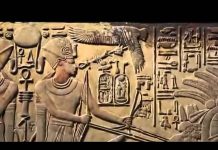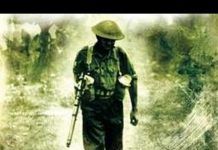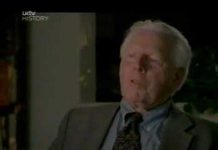In the wake of the First World War, a tectonic shift in the global landscape began to unfold, like the intricate plot of an epic film. In this era of upheaval, Niall Ferguson takes us on a compelling journey, revealing the tangled web of events that marked the disintegration of global free trade and democracy. Ferguson’s narrative unfolds like a suspenseful drama, a story that gives us a glimpse into the turbulent times that witnessed the rise of protectionism and totalitarianism in Russia, Germany, and Japan, followed by the harrowing descent into racial persecution and subjugation.
The post-World War I period was a world transformed. The years preceding the war had seen the flourishing of globalization and democracy, with the belief that nations interconnected through trade and shared values could prevent the horrors of conflict. But the reality that followed was starkly different. Ferguson, our storyteller, unravels the reasons behind this dramatic shift, providing us with a historical thriller full of political intrigue, economic warfare, and ideological turmoil.
The global economic order, symbolized by the notion of free trade, faced its most significant test in the aftermath of the Great War. With the Treaty of Versailles imposing heavy reparations on Germany, it set the stage for economic collapse and political unrest. Ferguson guides us through the intricacies of this post-war environment, demonstrating how economic distress fueled political extremism and the rise of totalitarian regimes in the early 20th century.
Germany, once a prosperous and thriving nation, now faced the bleak prospects of a shattered economy and a harsh international community. The Weimar Republic struggled to maintain stability as inflation soared, leading to a sense of disillusionment and despair among the German people. It was during this time that the charismatic figure of Adolf Hitler emerged on the stage. With powerful oratory and an agenda of radical nationalism, he seized the reins of power, leading to the rise of the Nazi regime.
As our narrative progresses, we find ourselves in Russia, where a different kind of ideological storm was brewing. The Bolshevik Revolution had torn the country apart, leading to the establishment of the Soviet Union under the leadership of Vladimir Lenin and later Joseph Stalin. Ferguson sheds light on how the allure of communism and the promise of a classless society gripped the hearts and minds of the Russian people, as the nation transformed into a communist superpower.
Japan, too, was not immune to the tumultuous winds of change. The economic woes and political instability in the aftermath of the First World War paved the way for militarism and the emergence of an expansionist Japan. Ferguson masterfully guides us through the complex interplay of factors that led to Japan’s pursuit of imperial dominance in Asia, culminating in the horrors of World War II.
The darkest chapter of this narrative unfolds as racial persecution and subjugation become the order of the day. The horrors of the Holocaust in Germany, the mass purges and famines in the Soviet Union, and the brutality of Japanese expansionism reveal the darkest aspects of totalitarian regimes. These events, marked by suffering and inhumanity, serve as a chilling reminder of the consequences of unchecked power and extremist ideologies.
Niall Ferguson’s narrative is more than a historical account; it’s a gripping tale that explores the profound consequences of political decisions, economic shifts, and ideological fervor. It’s a story of how the post-World War I world was transformed by a series of events that reshaped the course of history. It serves as a reminder of the need for vigilance in safeguarding democracy, the perils of extreme ideologies, and the importance of a global order that values cooperation over conflict.
As the credits roll on this historical drama, one cannot help but reflect on the profound lessons that Niall Ferguson’s storytelling imparts. It’s a compelling account of a world in turmoil, a warning about the consequences of unchecked nationalism and the importance of preserving the ideals of democracy and free trade.
In the end, “The War Of The World – The Plan” offers not only a historical perspective but also a mirror to our present and a glimpse into the future. It reminds us that history has a way of repeating itself, and it’s up to us to ensure that the mistakes of the past remain confined to the annals of history, rather than a part of our future. It’s a story that echoes through time, urging us to be vigilant, to cherish the values of democracy, and to work together to prevent the darkest chapters of our history from being rewritten.
In summary, Niall Ferguson’s exploration of the post-World War I era is a gripping tale of turmoil and transformation. It offers profound insights into the complex interplay of political, economic, and ideological forces that reshaped the world. This historical narrative is not just a recounting of the past; it’s a stark reminder of the importance of safeguarding democracy and preserving the values of free trade in an ever-changing world.

































